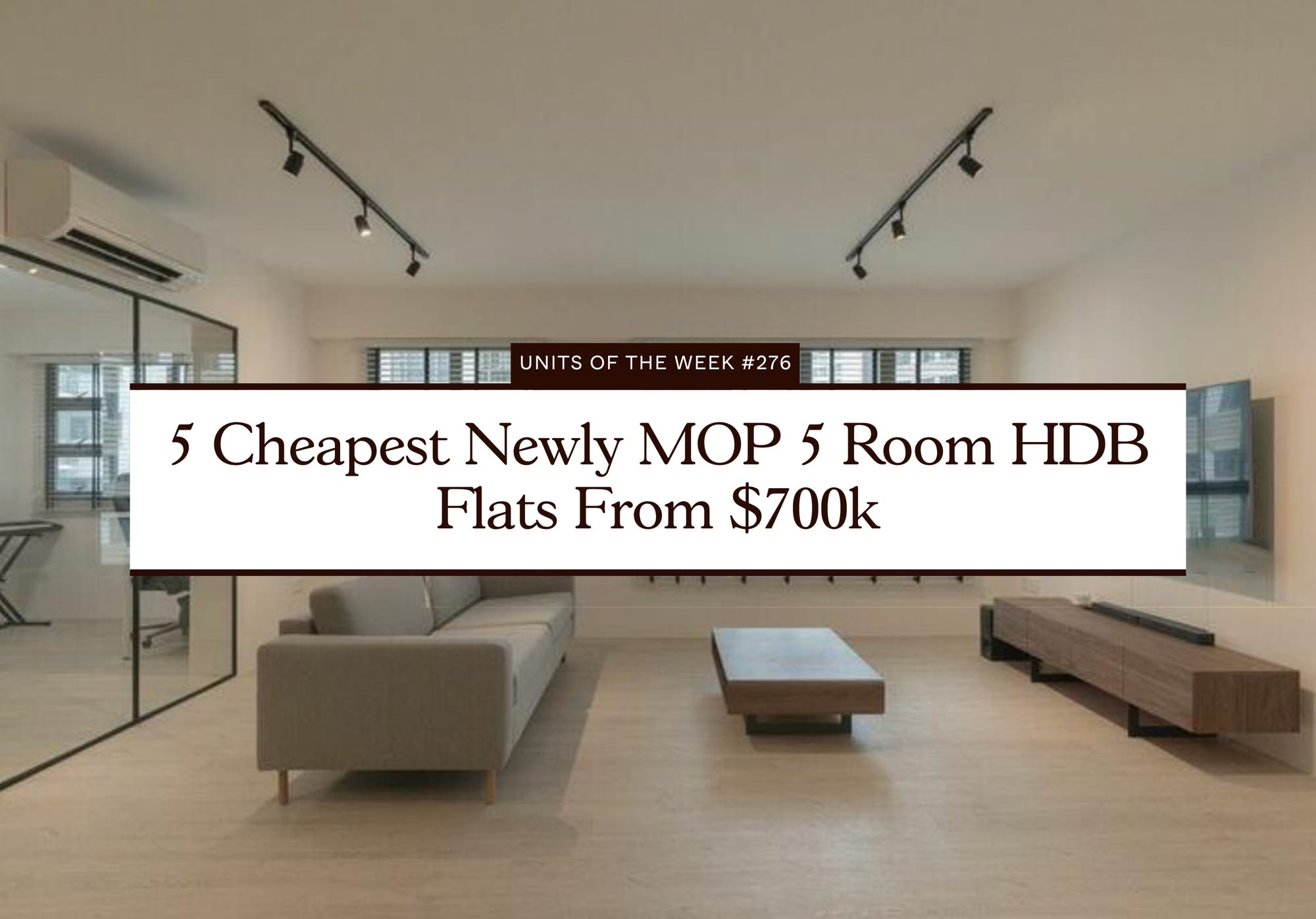How To Avoid ABSD When Buying A Second Property: Understanding Decoupling And How 99-1 Works

Get The Property Insights Serious Buyers Read First: Join 50,000+ readers who rely on our weekly breakdowns of Singapore’s property market.
A seasoned content strategist with over 17 years in the real estate and financial journalism sectors, Ryan has built a reputation for transforming complex industry jargon into accessible knowledge. With a track record of writing and editing for leading financial platforms and publications, Ryan's expertise has been recognised across various media outlets. His role as a former content editor for 99.co and a co-host for CNA 938's Open House programme underscores his commitment to providing valuable insights into the property market.
Decoupling is a way to have a second property in the family (albeit under individual names), without having to pay the Additional Buyers Stamp Duty (ABSD). That’s especially tempting in the current property market, where ABSD rates are at 20 per cent. However, decoupling isn’t well understood by some – as are the consequences of a 99-1 split. Here’s what you need to know:
First, if your current property is an HDB flat, none of this may help you
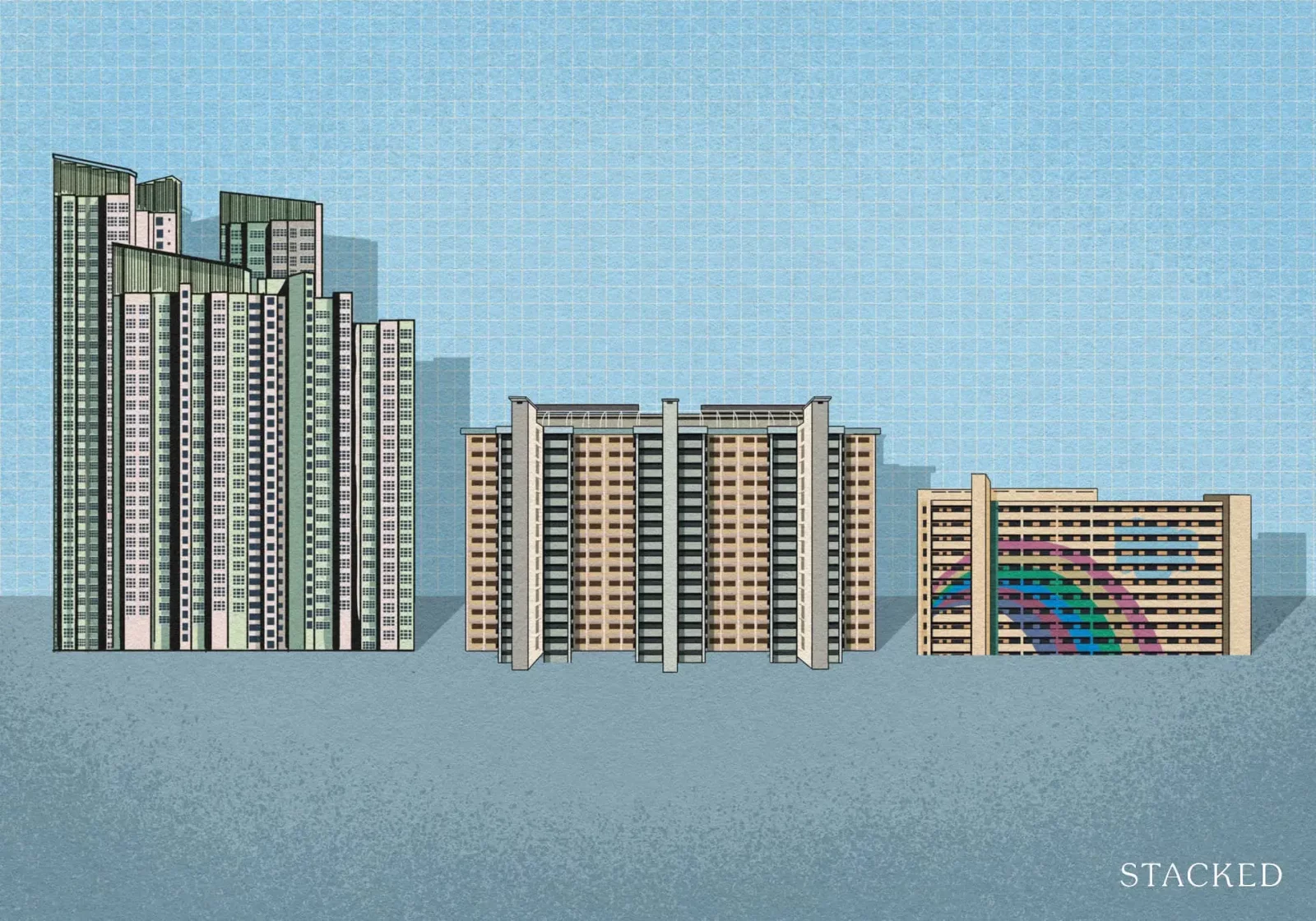
All the information below pertains to the decoupling of private properties. HDB doesn’t allow decoupling except under special circumstances, such as a divorce.
If you’ve heard of people decoupling with their flats in the past, it’s because this was possible before 4th May 2016, after which HDB closed the loophole.
If you’re confident your reasons for decoupling are justified though, you can still write an appeal to HDB (we suggest you ask your realtor to do this for you).
What is decoupling?
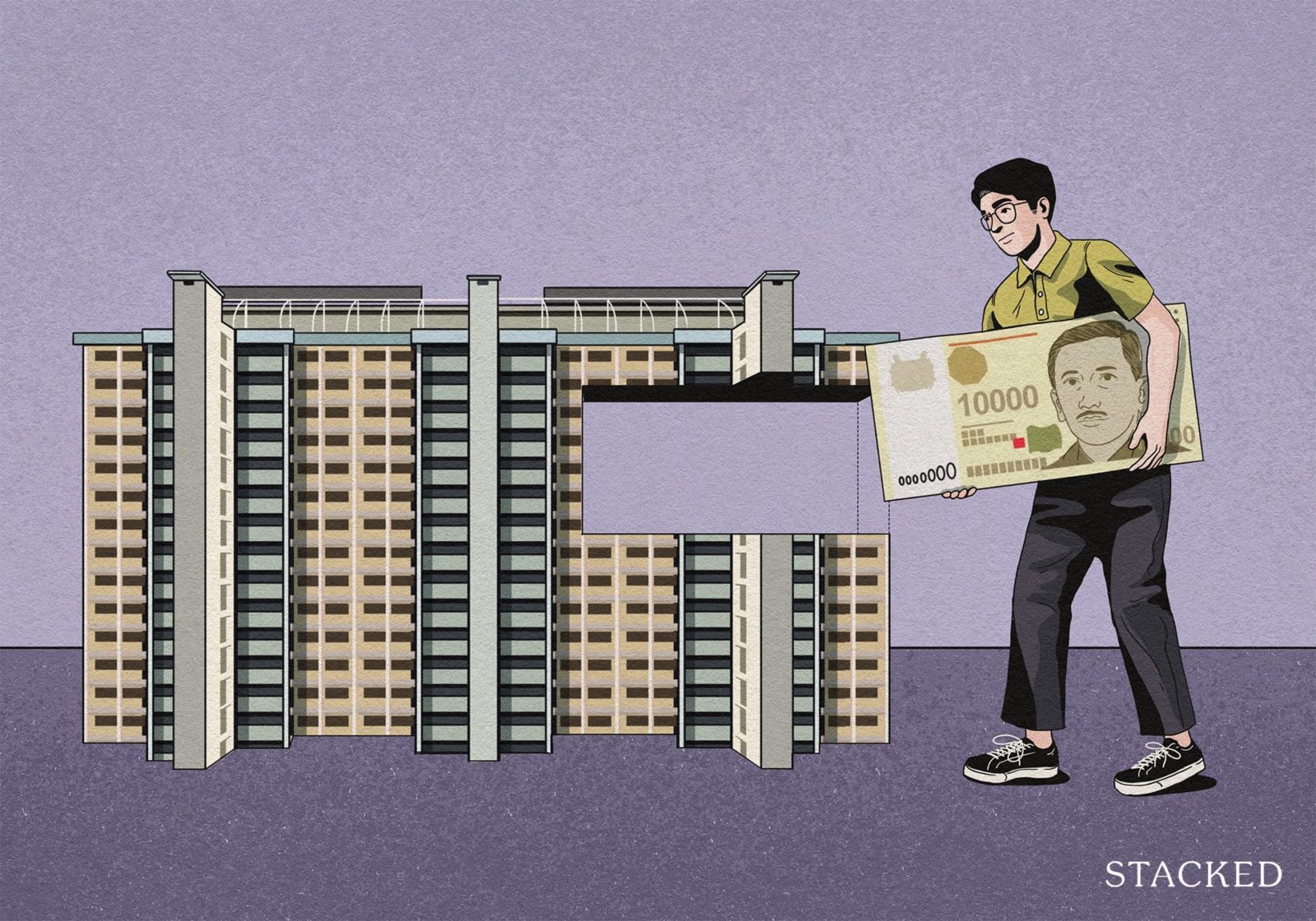
Decoupling is when one party transfers their share of a property to another, thus reducing their property count to zero.
For example: if a husband and wife both own a property, the wife might transfer her entire share over to her husband. This means she now owns zero properties, so when she purchases a residential unit, she will pay zero ABSD (as ABSD only applies from the second property onward, for Singapore citizens).
But this process is not free, and there are costs to decoupling. This is where the famous 99-1 split becomes relevant:
What is the 99-1 split?

When you purchase a property, you can choose two methods of holding. The usual method is a joint tenancy: in this arrangement, you and your co-borrower are treated as the same entity in the eyes of the law.
The other method is tenancy-in-common. This divides the property between you as you see fit, and each side can do as they will with their percentage of the property. For those who aim to decouple, they typically elect for a tenancy in common, with one party owning 99 per cent, and the other owning one per cent.
This is because transferring your share of the property is not free. The Buyer’s Stamp Duty (BSD) still applies to the percentage transferred. If you transfer 50 per cent of a property, then BSD applies to the 50 per cent.
So to use an example, consider a theoretical property that is $1 million:
If a couple uses a 50-50 split, the BSD rate for transferring applies to 50 per cent of the property ($500,000). This comes to a BSD of $9,600. But if the split was 99-1, and the BSD applies to just one per cent of the property ($10,000), then the BSD is a trivial $100. For this reason, those who aim to decouple almost always elect for a 99-1 split.
Important note about CPF usage
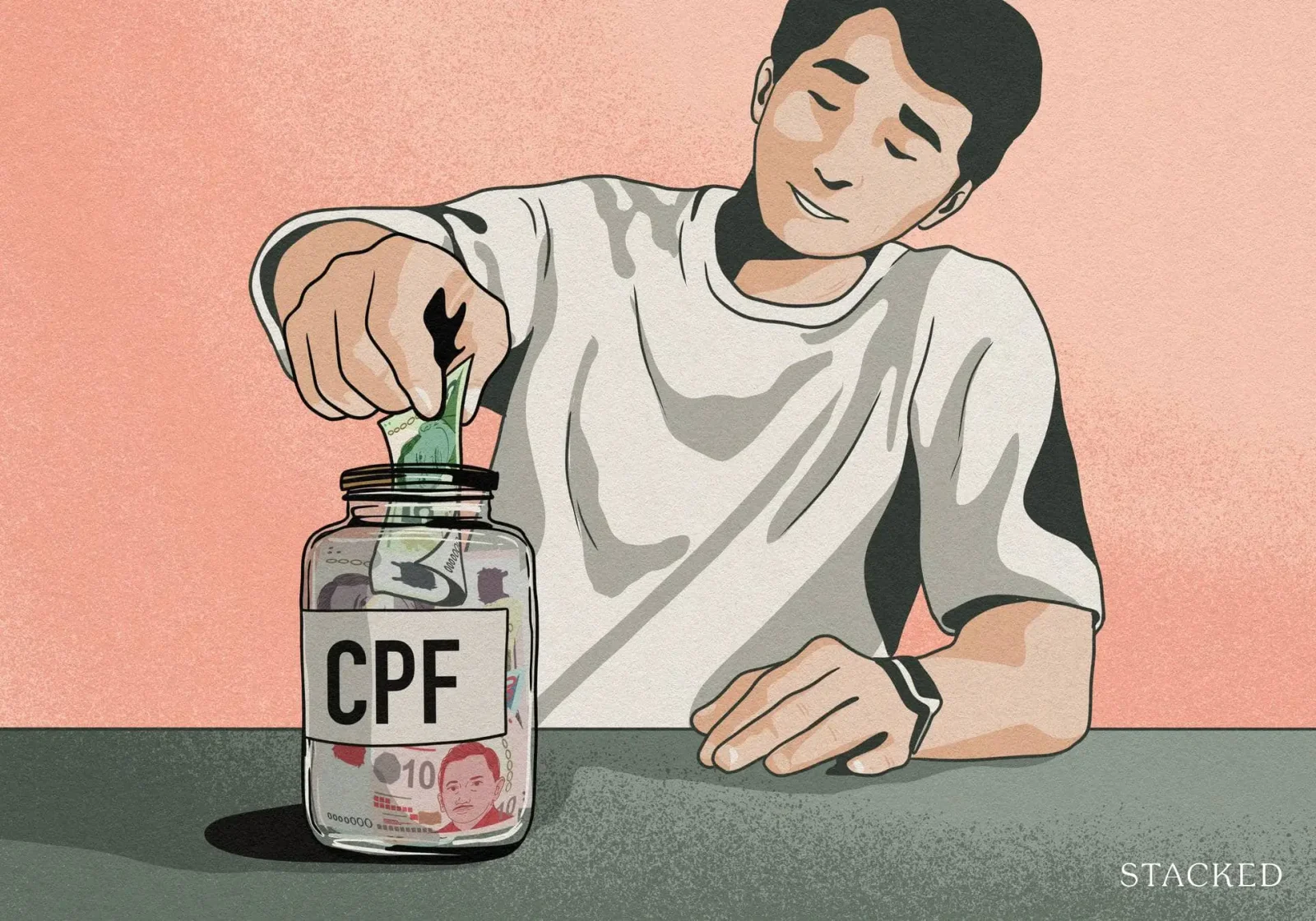
For decoupling cases, the buyer must return all cpf monies (accrued interest included), irregardless of the cash proceeds. This is different from a normal resale example (assuming seller sold below his purchase price) where a negative sale incurred from the seller would not require the buyer to return the cpf monies to the seller.
Side note: This is not the same as the ‘99-1” loophole that IRAS chased down in April 2023
This loophole sounds similar to decoupling, but is different. This loophole involved transferring one per cent of a property to someone who already owns a property.
For example: A husband owns a property, but his wife doesn’t.
More from Stacked
$1.89m For A New Luxury Condo In District 7: A Pricing Review Of Aurea
One of Aurea’s heavily marketed selling points is that units start from below $2 million. That’s interesting for a centrally…
The wife then buys a property paying no ABSD and transfers one per cent of that property to her husband, who – at the time when this loophole existed – would then have ownership of the property without paying ABSD.
We have a more elaborate explanation of this here. But suffice it to say decoupling is entirely legal, whereas the 99-1 loophole was an illegal way to dodge taxes.
Sounds good, why doesn’t everyone do it?
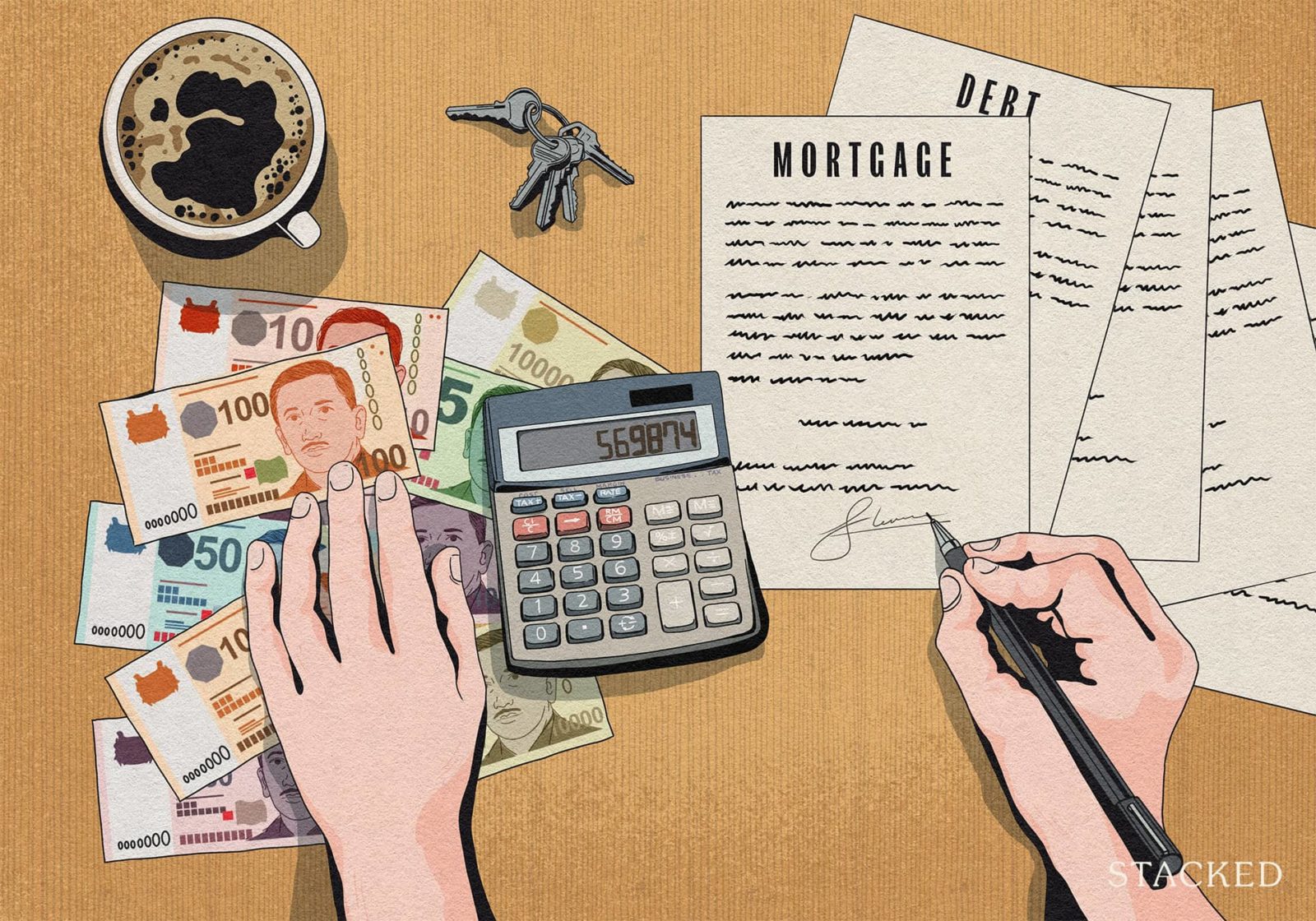
The main reason is that decoupling involves taking on two separate mortgages. This is only advisable for Singaporeans in a higher income bracket, given the much steeper property prices and interest rates today.
Consider if both husband and wife were to do a simple upgrade (i.e., sell their property and then buy a bigger one, still sharing the same mortgage). They would both be sharing the monthly loan repayments of a single home loan; and if one of them suffers a loss of income, it’s plausible the other could step up contributions.
This is different from a situation where each spouse is shouldering the weight of an entire home loan. In this instance, a loss of income by either party could force an urgent sale of one of the homes.
Back when decoupling was a common strategy, from around 2009 to the pre-Covid era, home loan rates were a lot lower than they are today; they could be as low as under two per cent (even cheaper than HDB loan rates).
But as of 2022 onward, rates have been slowly climbing to near four per cent (you can see the calculations to show the overall impact here).
Besides this, monthly home loan repayments are now capped at 55 per cent of your monthly income, under the TDSR framework.
When you pair loan curbs with higher interest rates and higher home prices, it’s much harder for the average Singaporean to meet this TDSR requirement. So unlike five or more years ago, fewer prospective buyers qualify to take on a separate home loan on their own.
If you want a sense of how much you should be earning to use this method, check out our case study, as well as our response to this query.
There is also a trust issue involved
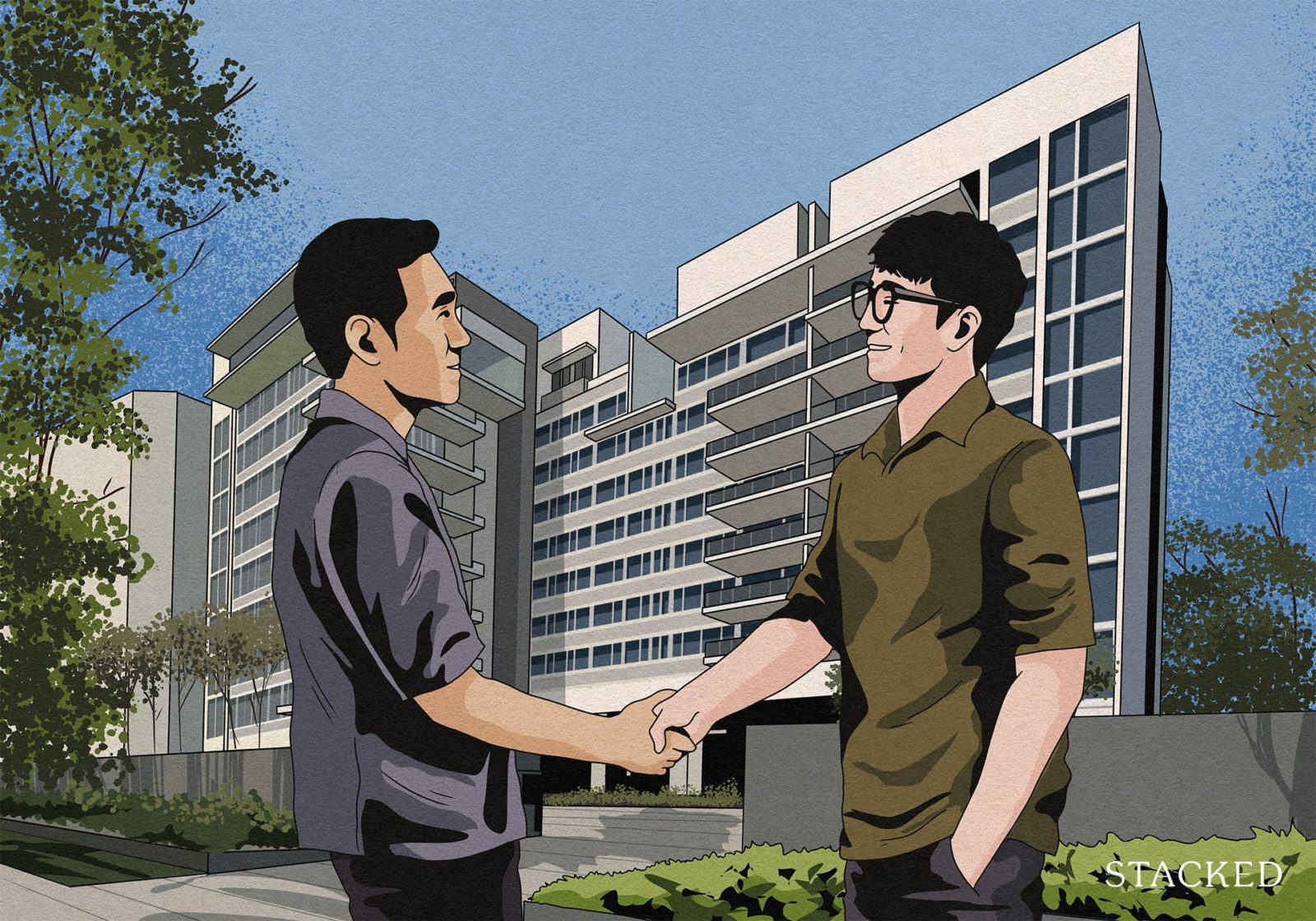
There’s also the fact that either party can sell their share to whomever they wish. Your spouse really can sell their one per cent to a third party, like their in-laws, a friend, etc., and you may end up co-owning the property with an unwelcome stranger.
Likewise, unlike a joint tenancy, the property may not immediately pass to your spouse if you pass away; your percentage share of the property may end up going to someone else in the family.
That said, do note that tenancy-in-common doesn’t work like majority shares in a company. Even if you own just one per cent, that doesn’t automatically give the majority owner the right to just kick you out, sell without your permission, etc.
In any case, we suggest you discuss the implications with your lawyer before going ahead. What we can say is that, unless you’re confidently in the upper-income brackets, or have fully paid off your existing property, decoupling isn’t something to be done lightly.
For more on the Singapore property market, follow us on Stacked. You can also check out in-depth reviews of new and resale properties alike. If you’d like to get in touch for a more in-depth consultation, you can do so here.
Ryan J
A seasoned content strategist with over 17 years in the real estate and financial journalism sectors, Ryan has built a reputation for transforming complex industry jargon into accessible knowledge. With a track record of writing and editing for leading financial platforms and publications, Ryan's expertise has been recognised across various media outlets. His role as a former content editor for 99.co and a co-host for CNA 938's Open House programme underscores his commitment to providing valuable insights into the property market.Read next from Property Investment Insights
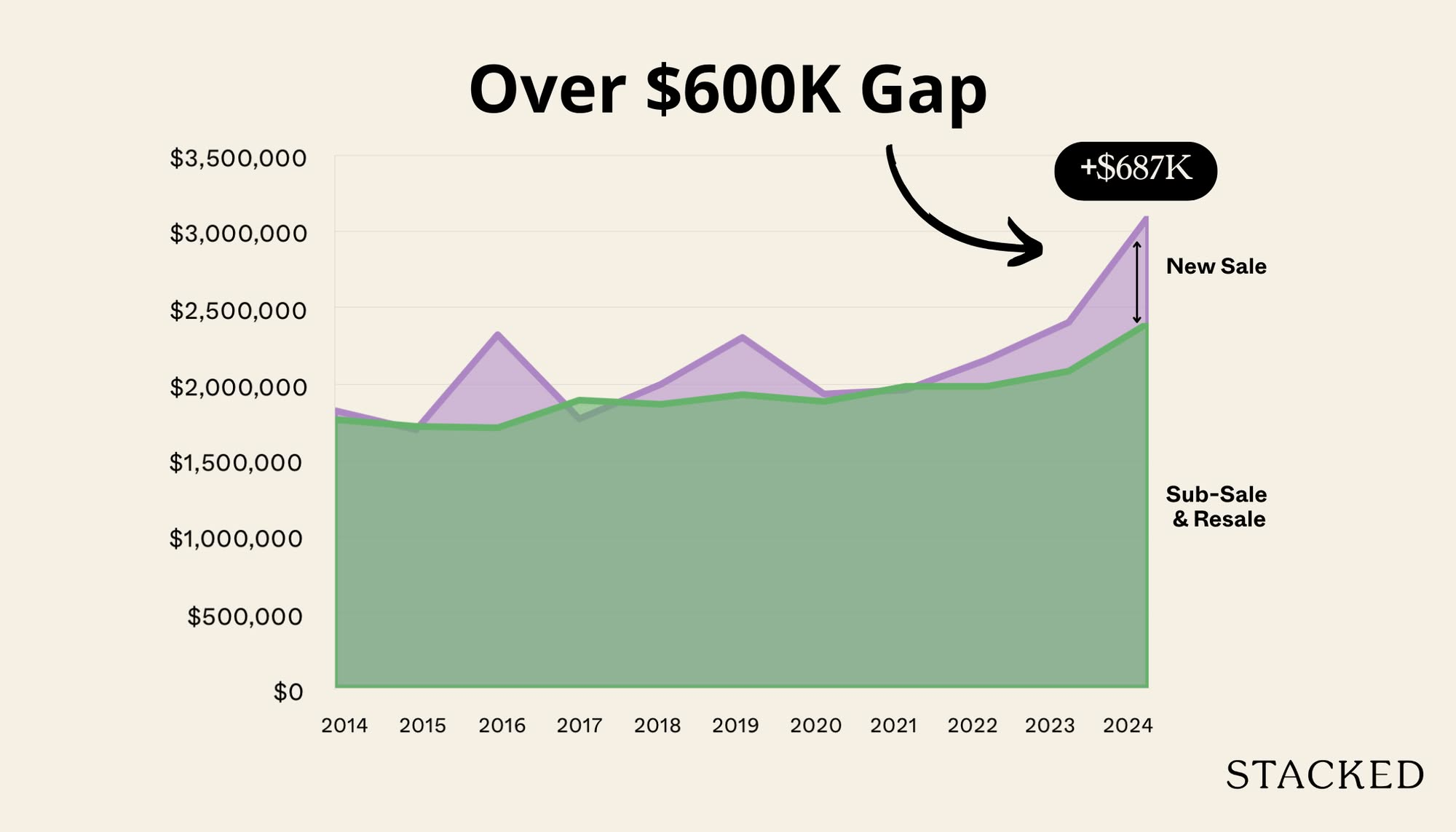
Property Investment Insights We Compared New Vs Resale Condo Prices In District 10—Here’s Why New 2-Bedders Now Cost Over $600K More
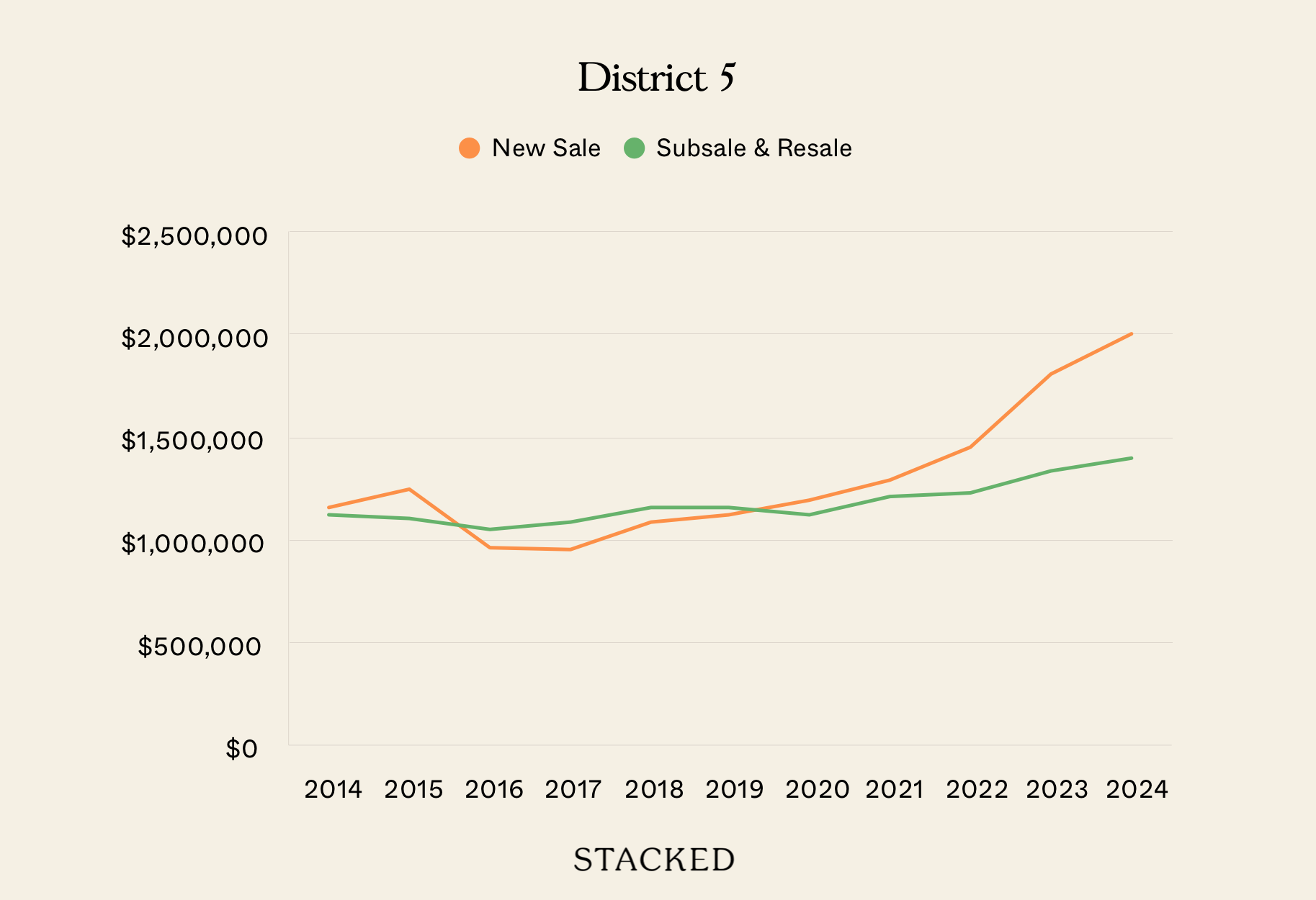
Property Investment Insights We Compared New Launch And Resale Condo Prices Across Districts—Here’s Where The Price Gaps Are The Biggest
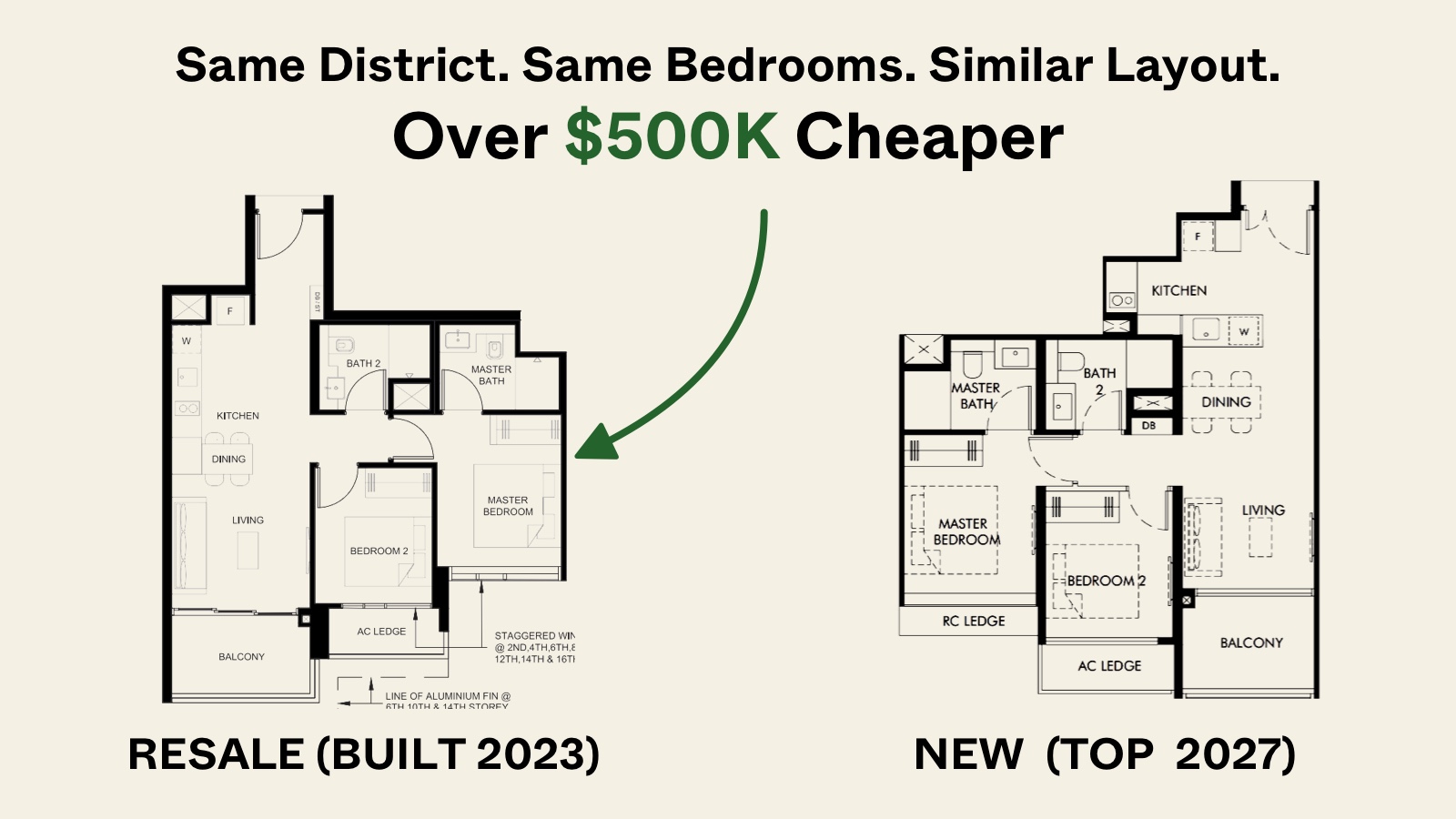
Property Investment Insights Similar Layout, Same District—But Over $500K Cheaper? We Compare New Launch Vs Resale Condos In District 5
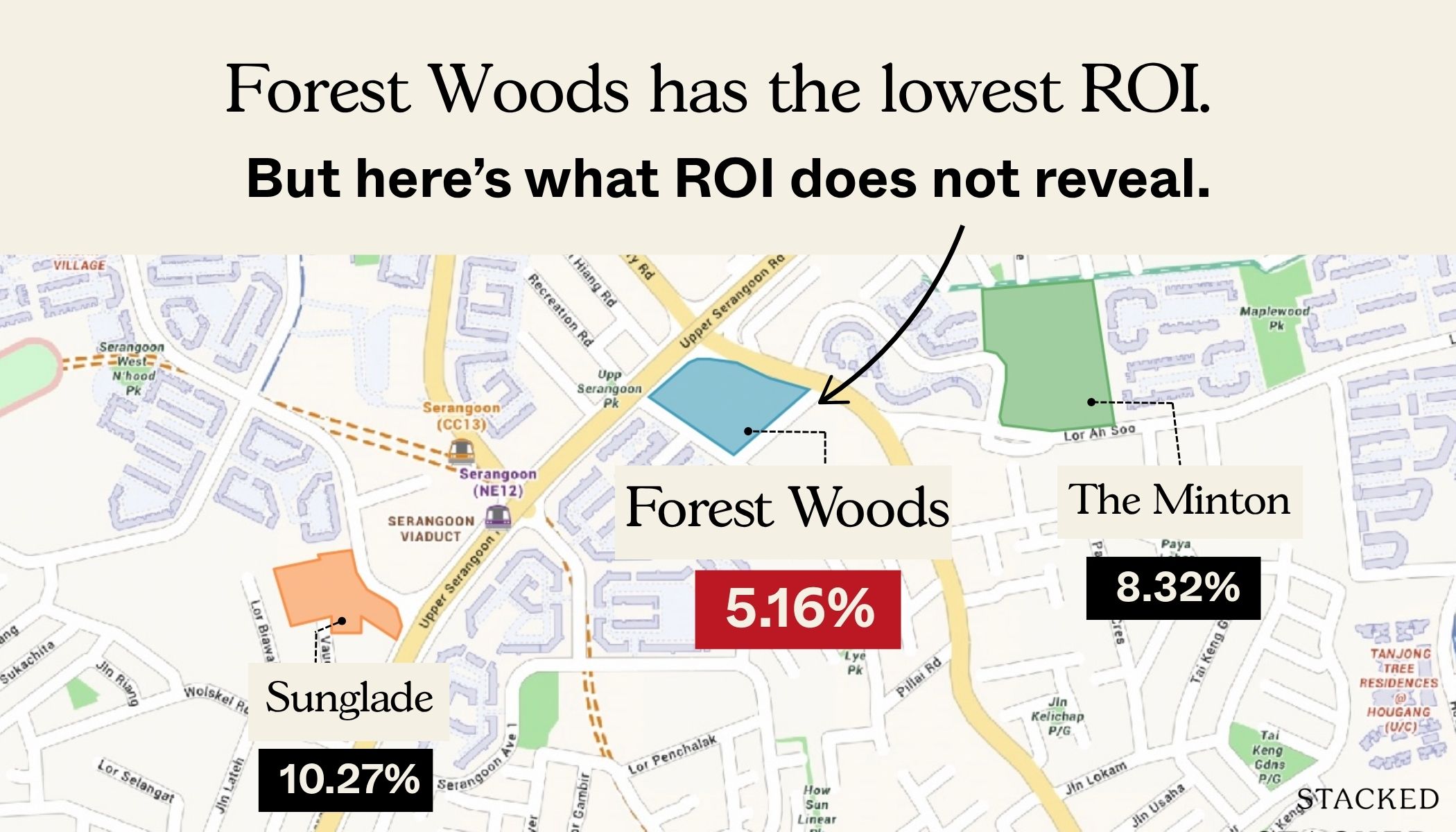
Property Investment Insights Analysing Forest Woods Condo at Serangoon: Did This 2016 Project Hold Up Over Time?
Latest Posts
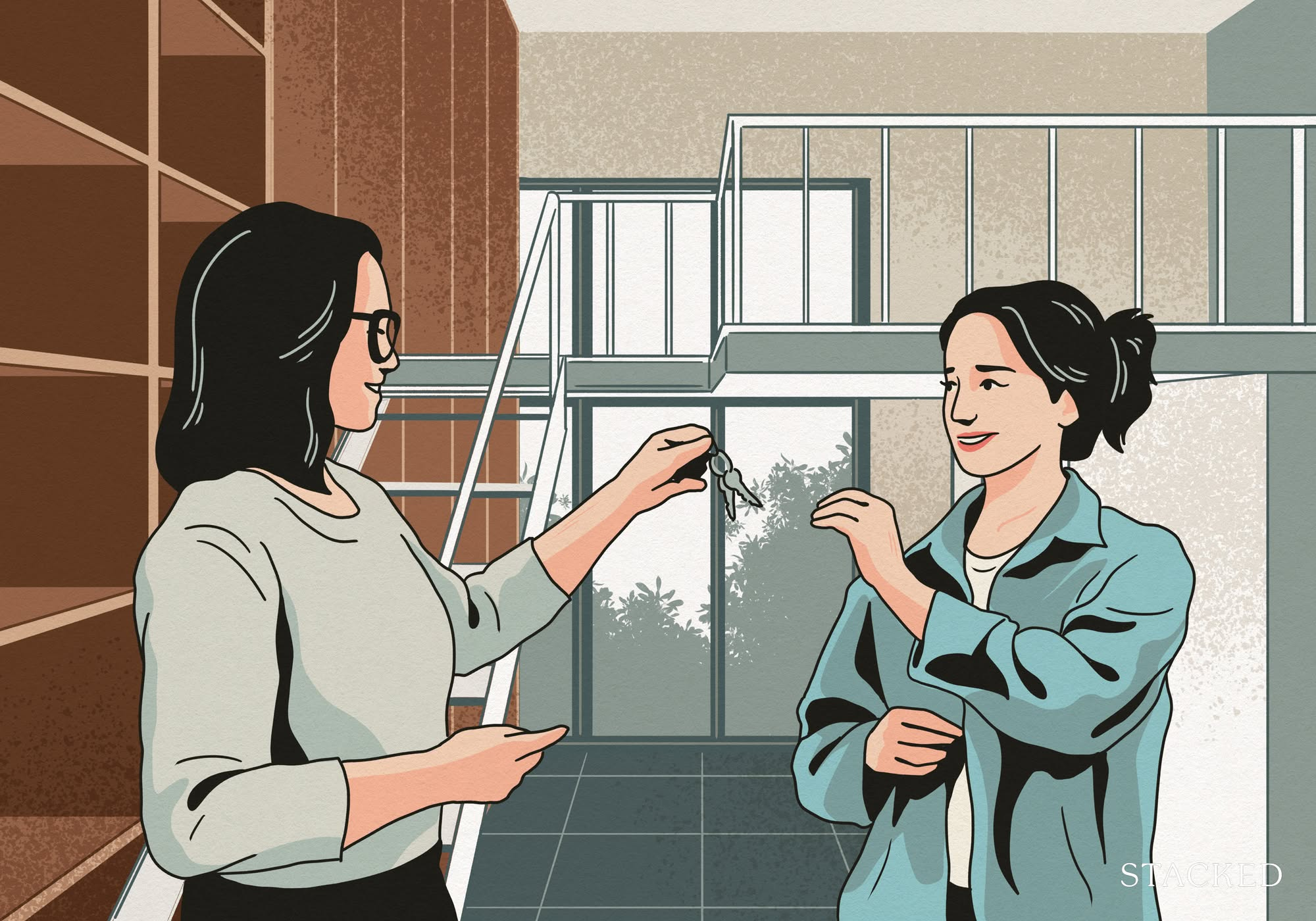
Singapore Property News They Paid Rent On Time—And Still Got Evicted. Here’s The Messy Truth About Subletting In Singapore.
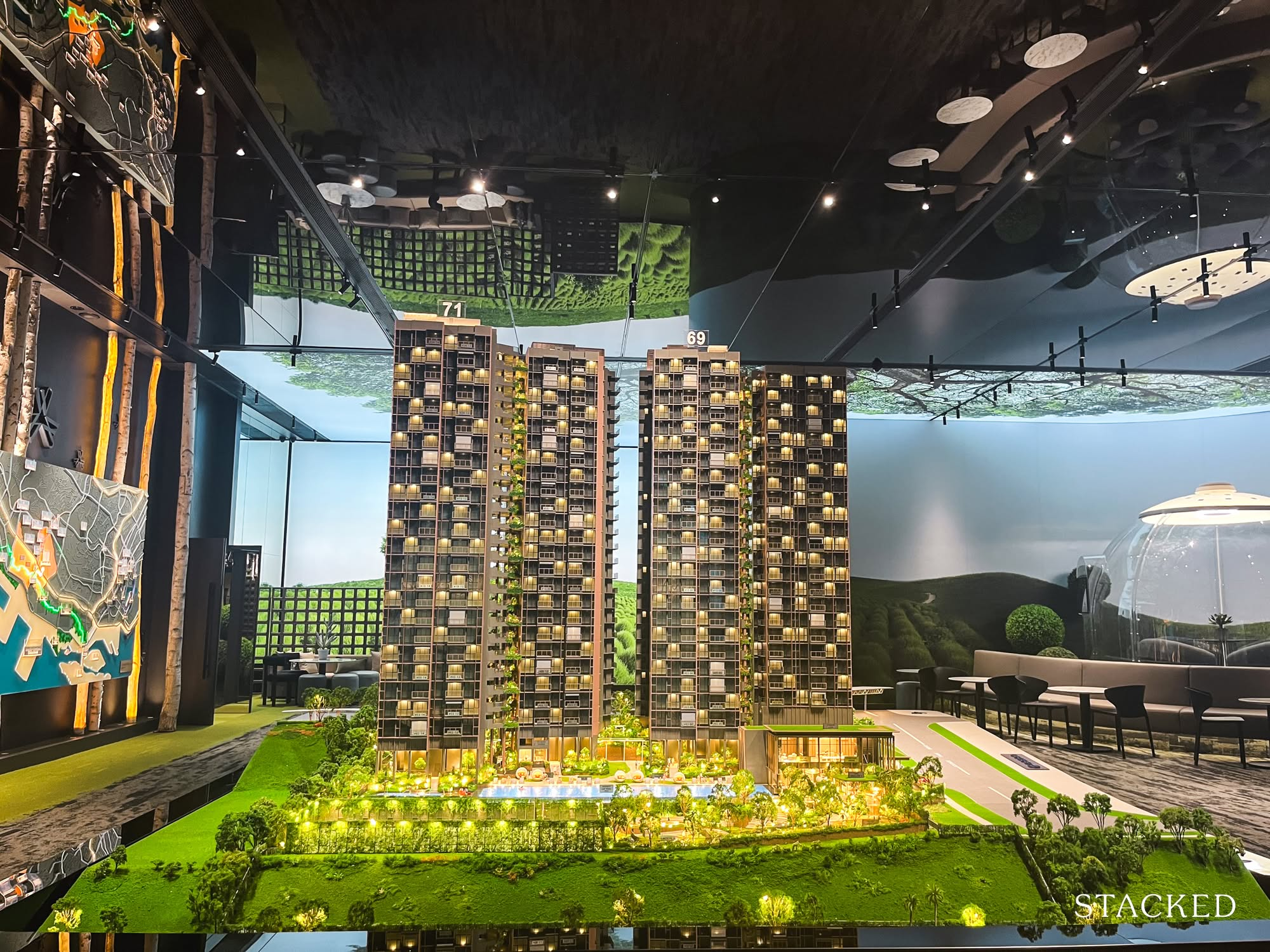
New Launch Condo Reviews LyndenWoods Condo Review: 343 Units, 3 Pools, And A Pickleball Court From $1.39m
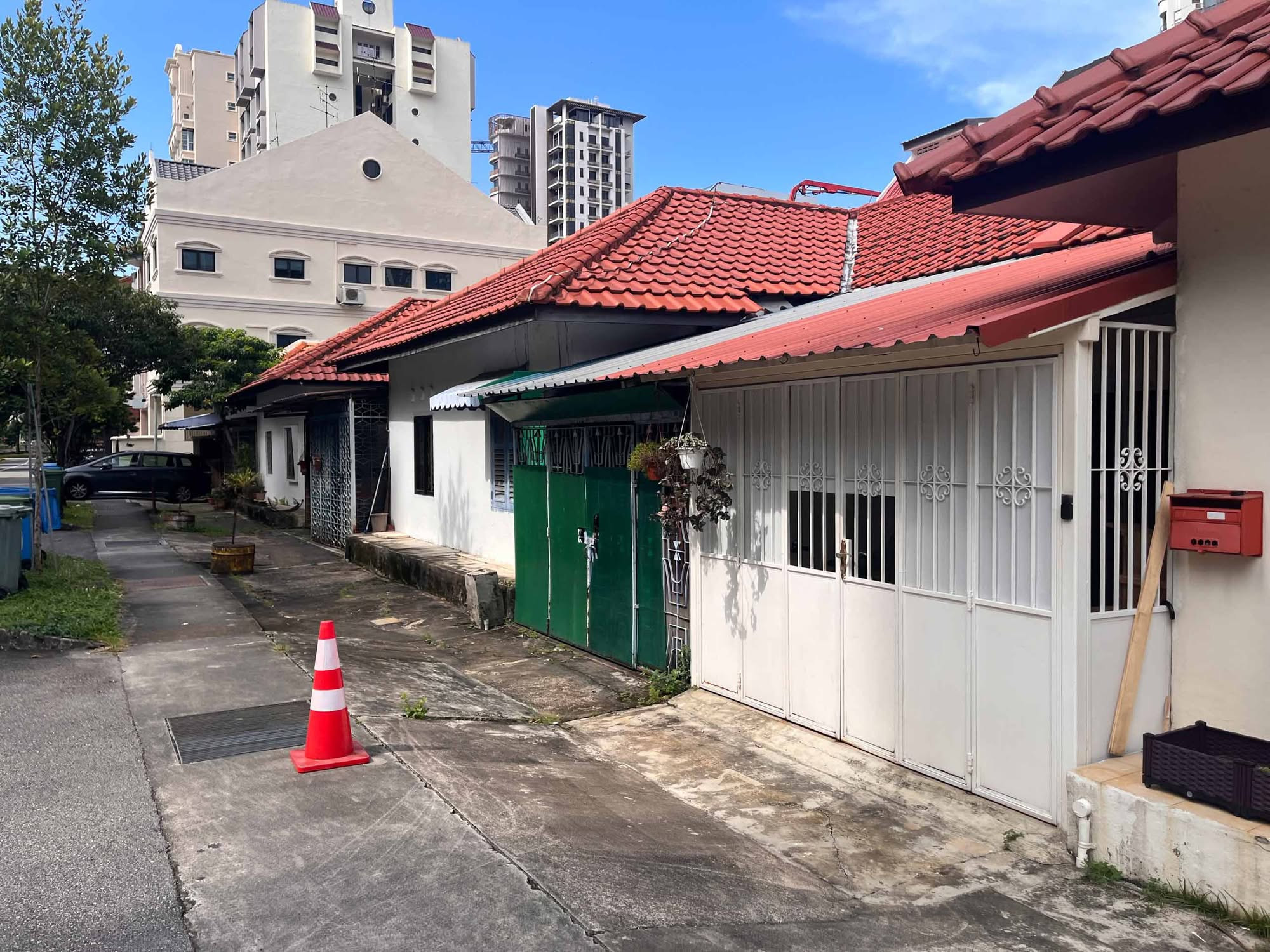
Landed Home Tours We Tour Affordable Freehold Landed Homes In Balestier From $3.4m (From Jalan Ampas To Boon Teck Road)
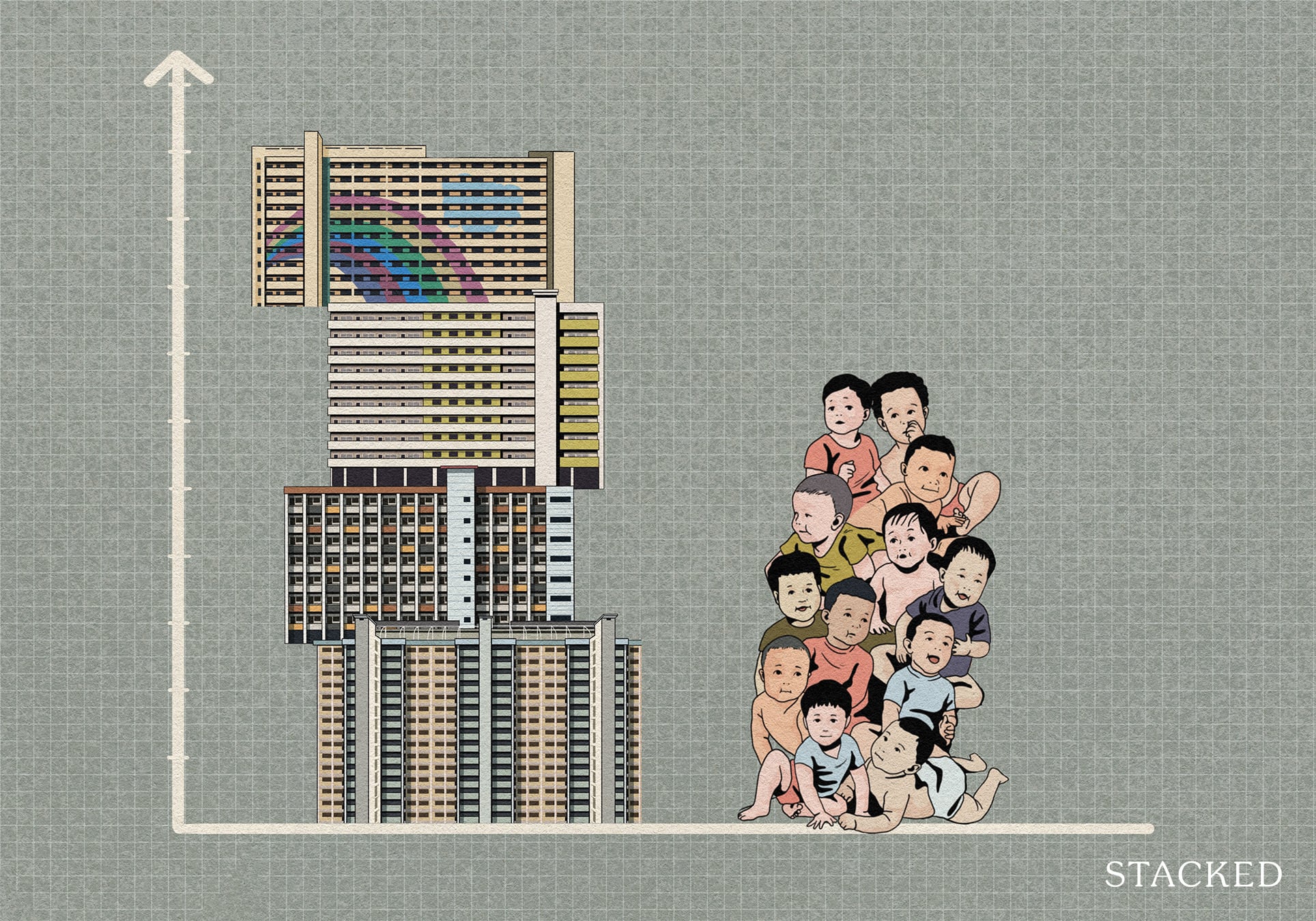
Singapore Property News Is Our Housing Policy Secretly Singapore’s Most Effective Birth Control?
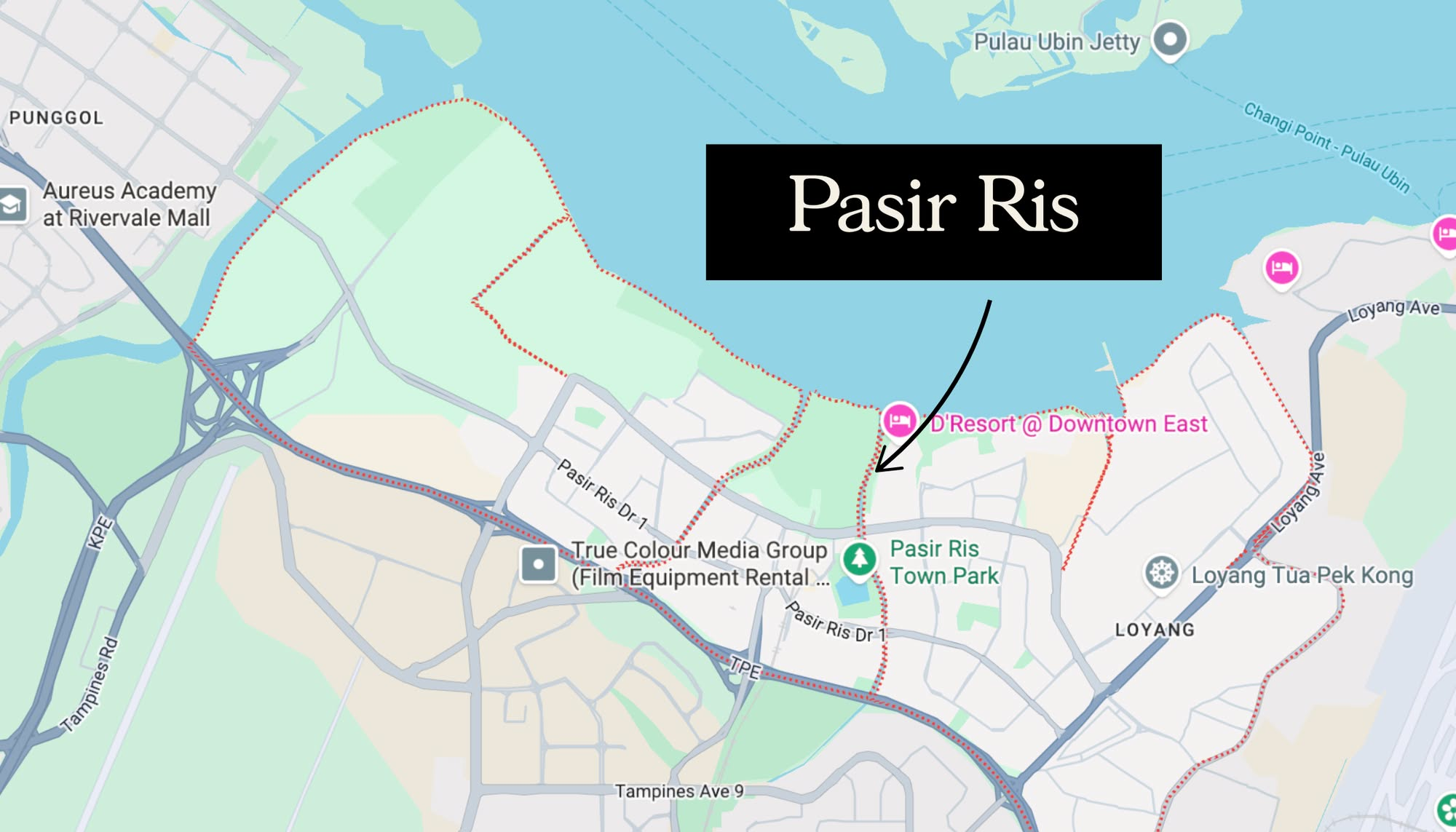
Property Market Commentary Why More Young Families Are Moving to Pasir Ris (Hint: It’s Not Just About the New EC)
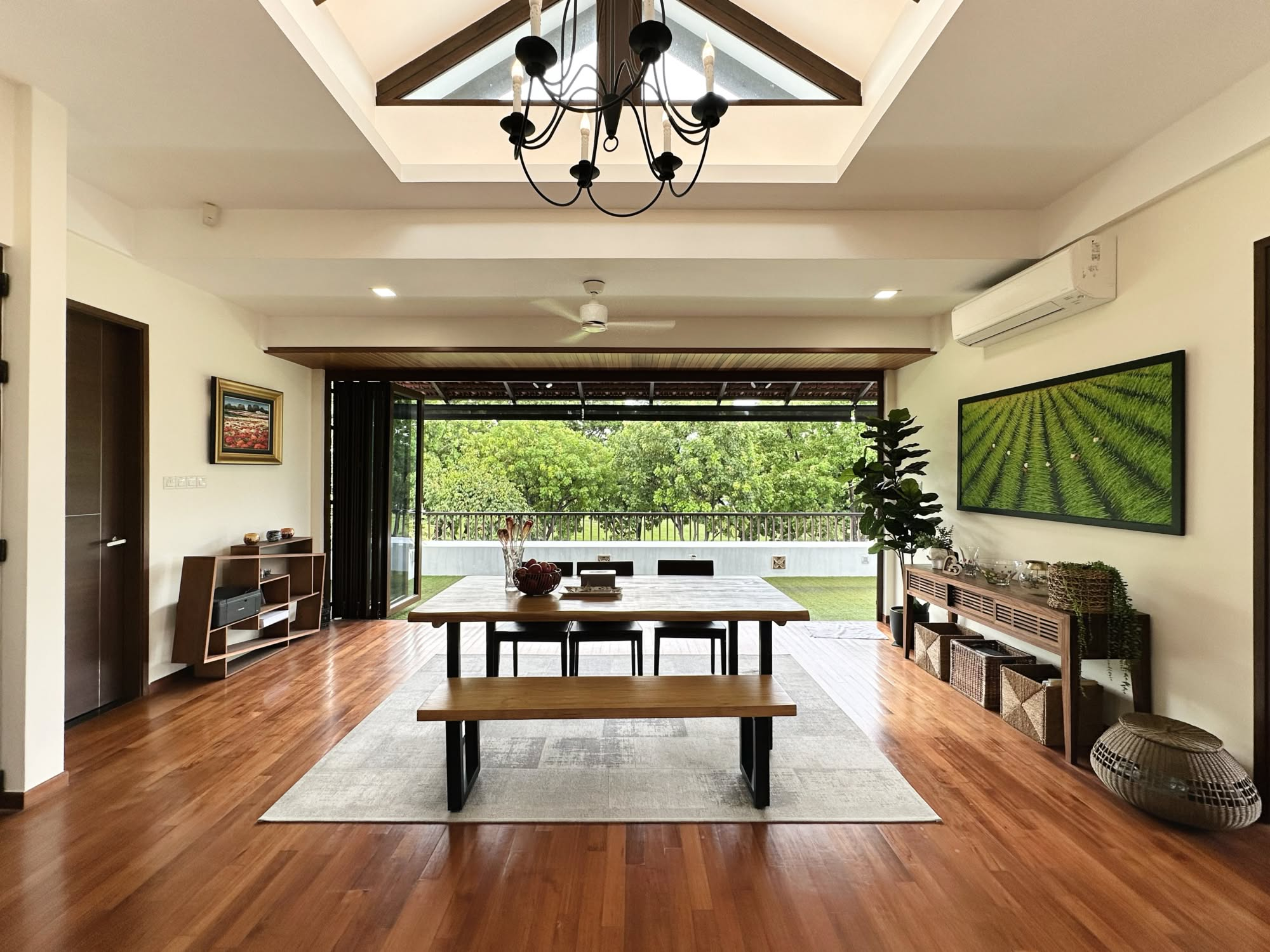
On The Market A 10,000 Sq Ft Freehold Landed Home In The East Is On The Market For $10.8M: Here’s A Closer Look
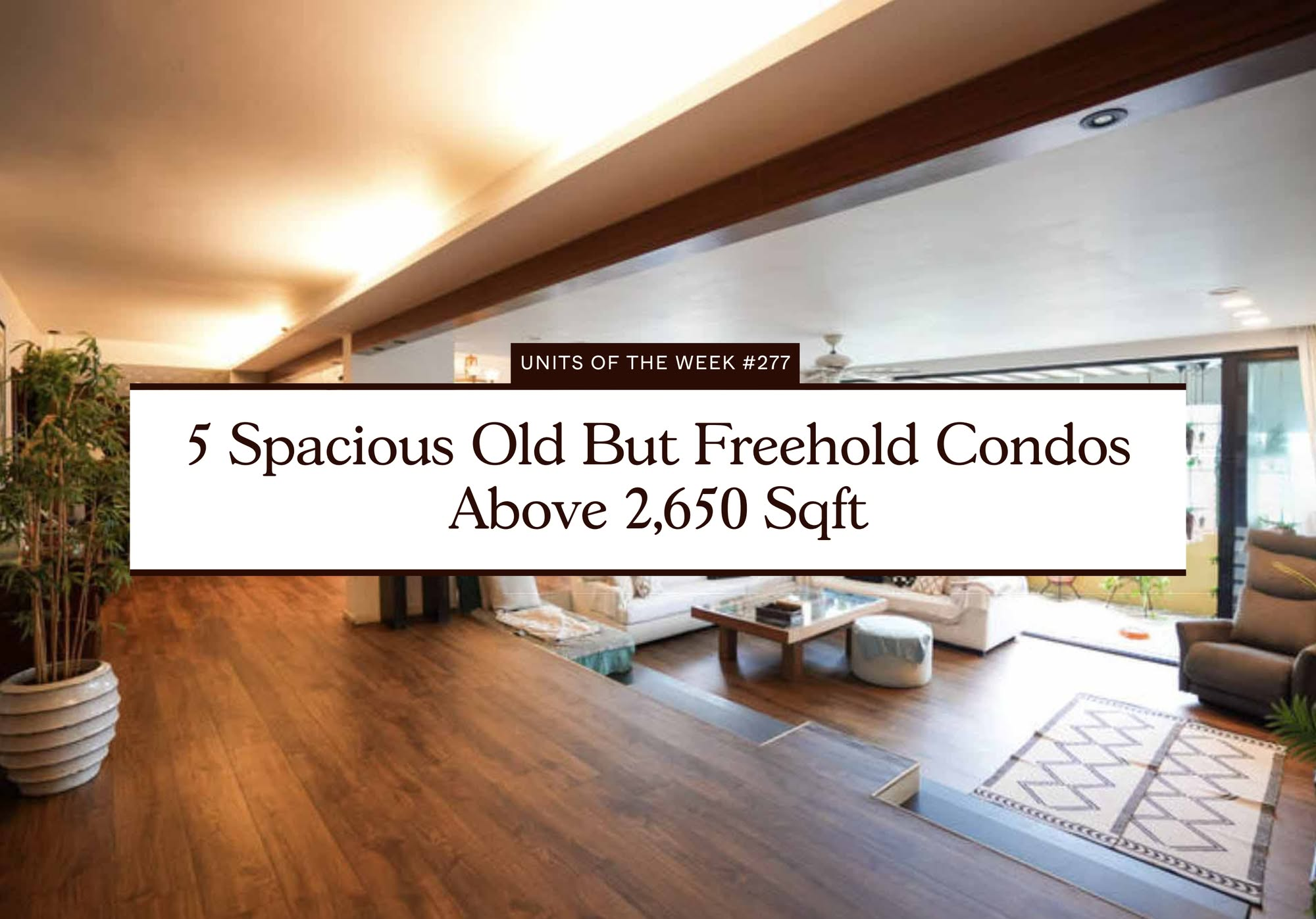
On The Market 5 Spacious Old But Freehold Condos Above 2,650 Sqft
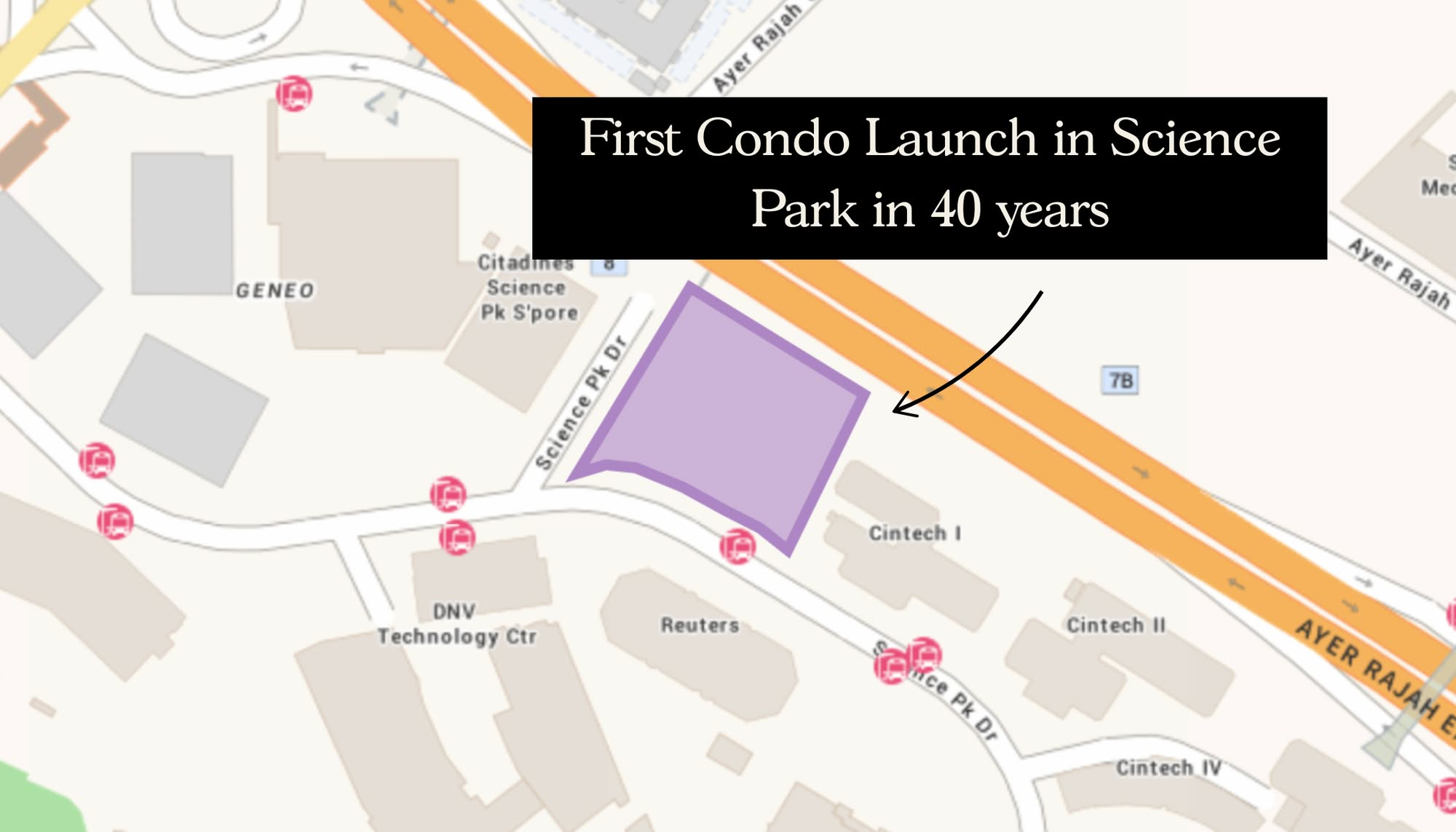
New Launch Condo Analysis The First New Condo In Science Park After 40 Years: Is LyndenWoods Worth A Look? (Priced From $2,173 Psf)

Editor's Pick Why The Johor-Singapore Economic Zone Isn’t Just “Iskandar 2.0”
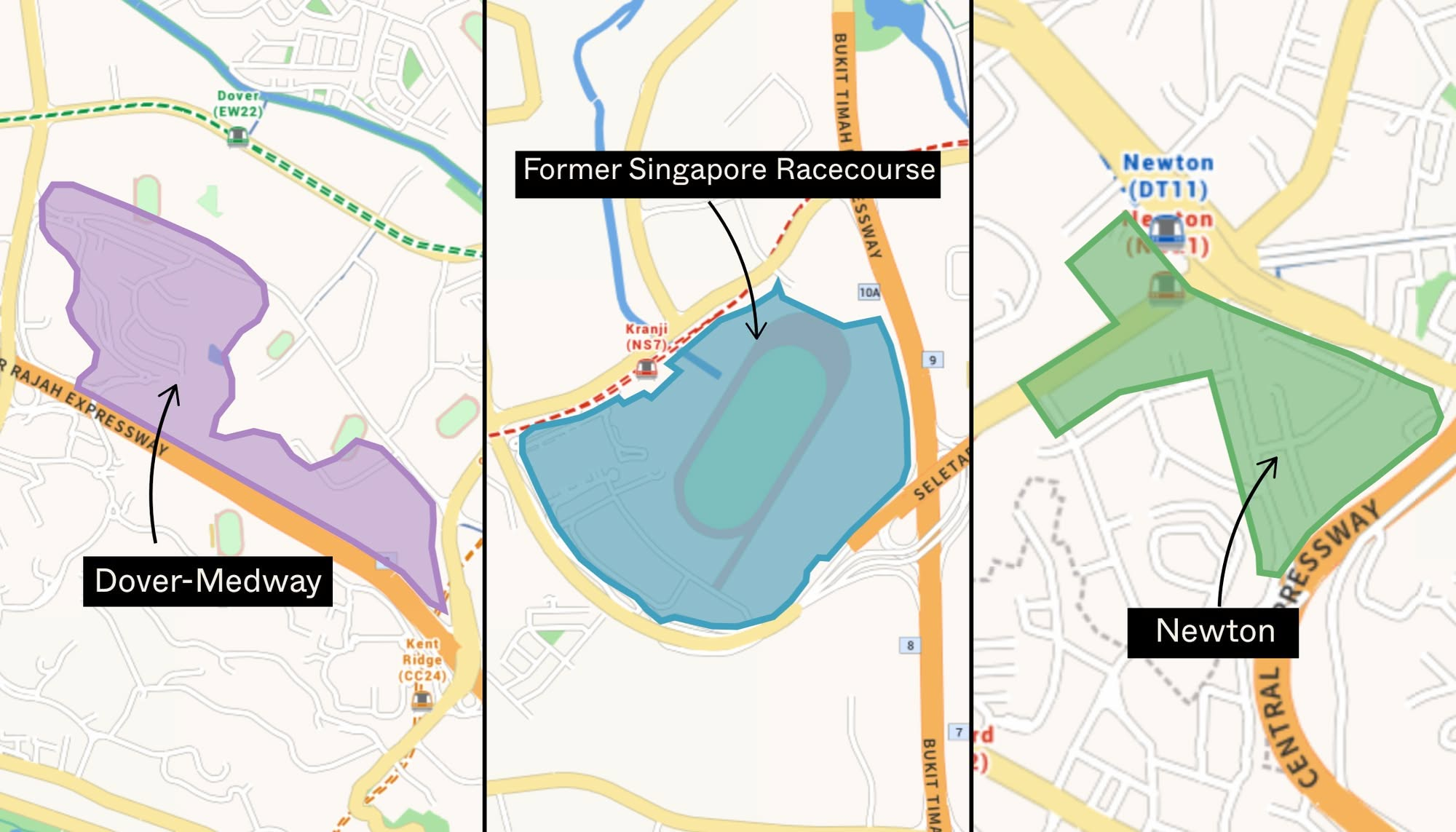
Editor's Pick URA’s 2025 Draft Master Plan: 80,000 New Homes Across 10 Estates — Here’s What To Look Out For
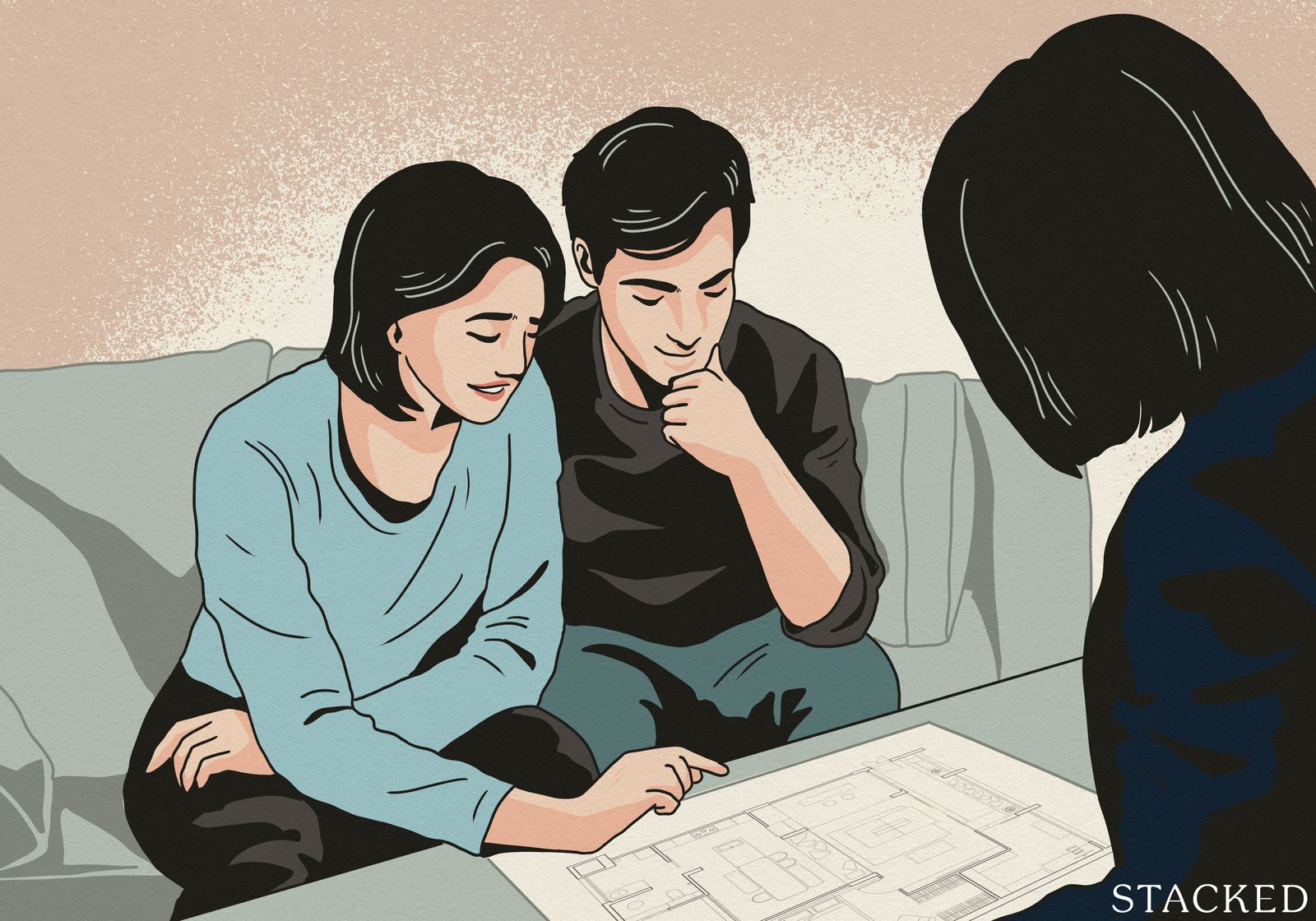
Property Advice We Ranked The Most Important Things To Consider Before Buying A Property In Singapore: This One Came Top
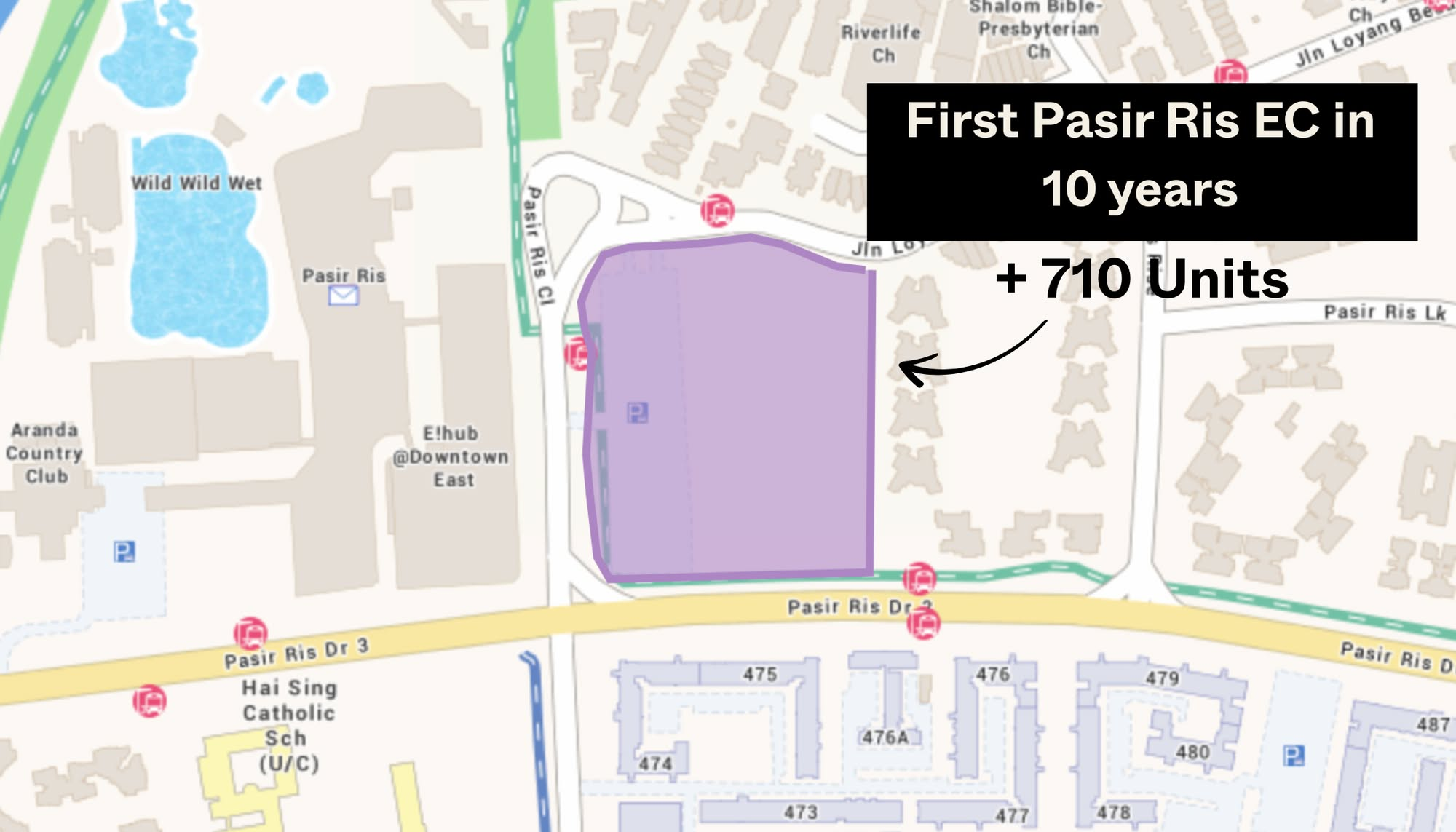
Property Market Commentary This Upcoming 710-Unit Executive Condo In Pasir Ris Will Be One To Watch For Families
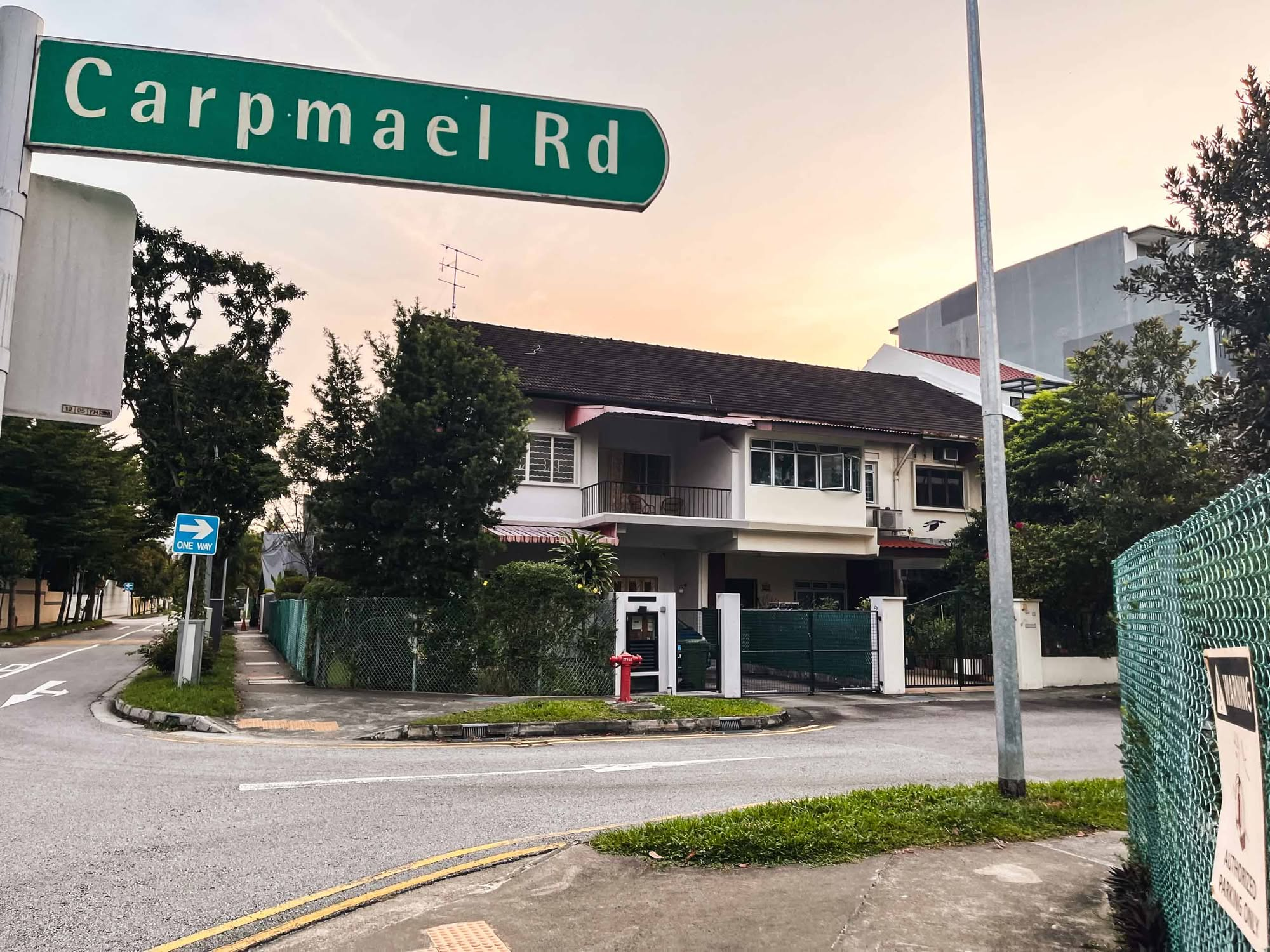
Editor's Pick Where To Find Freehold Terrace & Semi-D Landed Homes From $4.85 million In The East
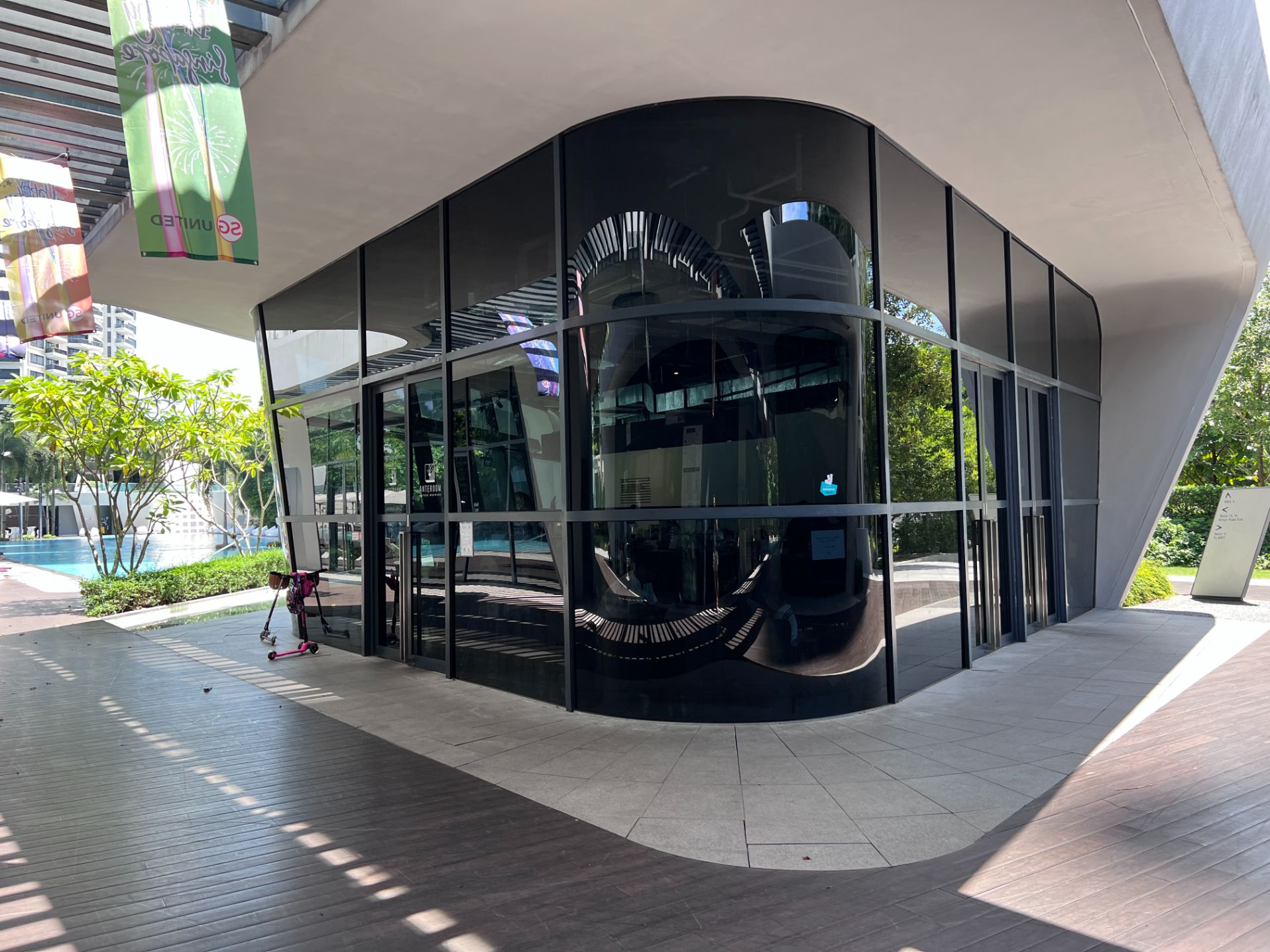
Singapore Property News She Lost $590,000 On A Shop Space That Didn’t Exist: The Problem With Floor Plans In Singapore

Editor's Pick Which Central Singapore Condos Still Offer Long-Term Value? Here Are My Picks
